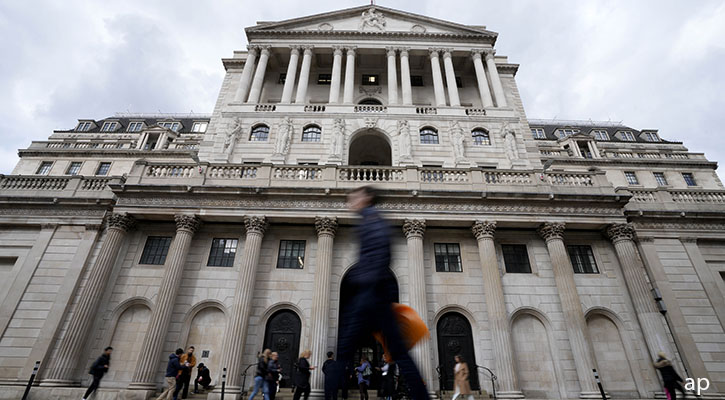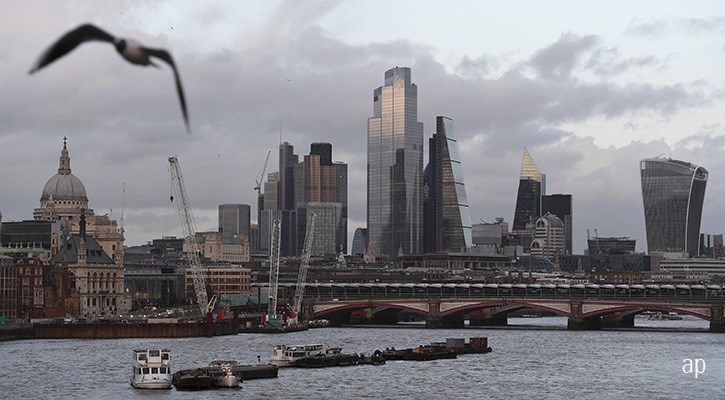
The UK economy grew unexpectedly in October, with the nation's economy now estimated to be 0.4% larger than its pre-pandemic size, according to figures from the Office of National Statistics on Monday.
Monthly real gross domestic product is estimated to have grown by 0.5% in October from the month before, following a fall of 0.6% in September from August. Market consensus, as cited by FXStreet, had expected the UK economy to contract by 0.1% in October.
The services sector grew by 0.6% in October from September, and was the main driver of GDP growth according to the ONS.
Industrial production was flat in October, and the construction sector grew by 0.8%, its fourth consecutive increase.
Quarter-on-quarter, GDP fell by 0.3%. October GDP was up 1.5% compared with the same month last year.
Total imports of goods decreased by £1.4 billion, or 2.6%, in October against the prior month because of falling imports from non-EU countries. Total exports of goods fell by £700 million, or 2.2%, with exports to both EU and non-EU countries falling.
Next Up: UK Inflation and Interest Rates
It’s a busy week for UK economics, in a last flourish before the end of the year. On Tuesday the ONS releases employment data and Wednesday we get the inflation figures for November. October CPI came in at 11.1%, the highest since records began for that measure. Inflation is expected to have fallen back last month on weakening petrol prices. Policymakers will be keen to see signs that inflation has peaked, especially those in Threadneedle Street, who continue to forecast a drop back to the 2% inflation target in 2023.
This week the Bank of England monetary policy committee meets for the last time this year. It’s expected to hike interest rates from 3% to 3.5%. Last month the Bank hiked rates from 2.25% to 3%.




























